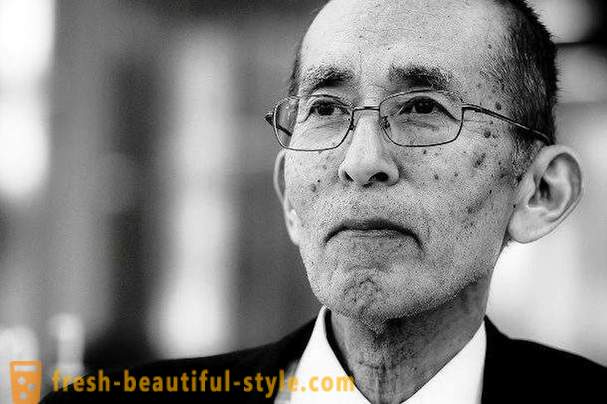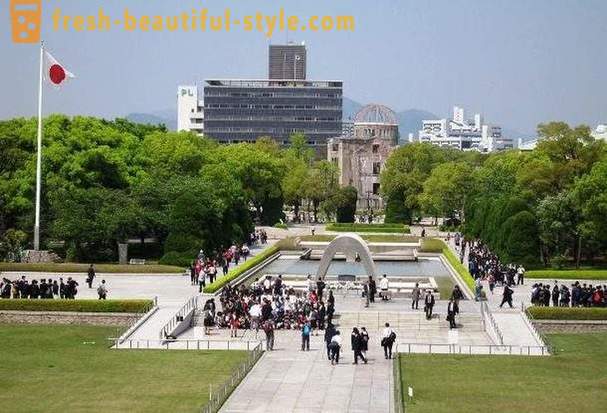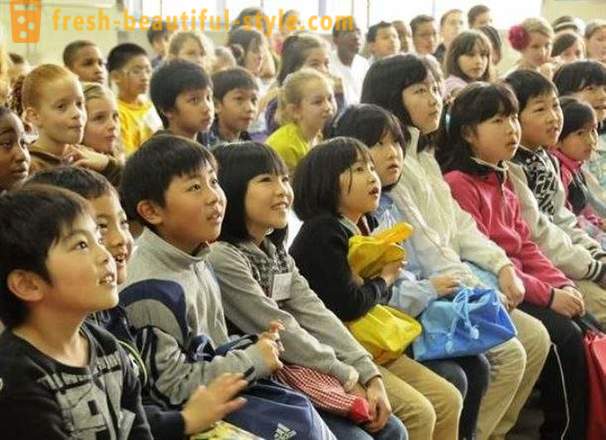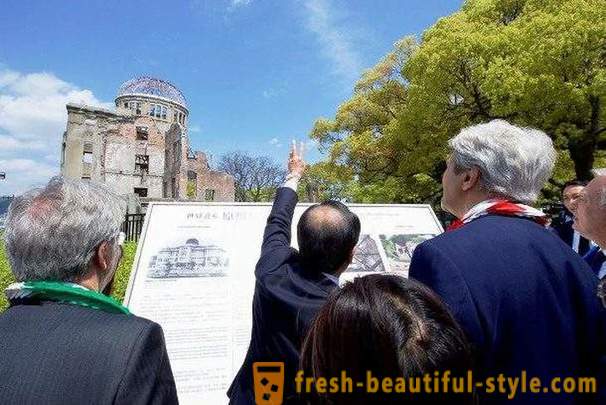The impact of the disaster of Hiroshima and Nagasaki on Japanese culture
• The impact of the Hiroshima and Nagasaki disasters on Japanese culture
August 6, 1945 the Japanese city of Hiroshima was subjected to a nuclear attack by the United States, three days later the same fate befell Nagasaki. Two bombs - Little Boy ( "Babe") and Fat Man ( "Fat Man") - according to various sources, claimed the lives of between 150 to 246 thousand people. This act of aggression, the United States decided two things: accelerated Japan's surrender and tested a nuclear weapon in the real world.

Since then, despite the overhanging sometimes over the world the threat of nuclear war, no city was not attacked in this way. In Japanese culture, meanwhile, there were many echoes of that terrible tragedy.

The Japanese have a word 被 爆 者 (Hibakusha), which translates to "people exposed to the explosion." So we call those who survived the atomic bombing of Hiroshima and Nagasaki.

Six ginkgo trees growing near the site of a bomb falling in Nagasaki, received heavy damage in the explosion, but miraculously did not die. Soon burned branches new buds appear. Now ginkgo tree is a symbol of hope in Japan.

Few people know that the famous Japanese monster giant Godzilla was originally conceived as a metaphor for the explosions at Hiroshima and Nagasaki.

Each year on August 6 in the Peace Memorial Park in Hiroshima commemoration ceremony is held, and exactly at 8:15 (the time of the explosion) announced a minute of silence.

Among the children born to those who are in the city in the time of the explosion, there were no mutations or serious pathologies.

However, the survivors of the bombing and their children were exposed to serious discrimination, mainly because of prevailing in a society ignorant ideas about the effects of radiation sickness. Many of these people has been difficult to find a job or get married as most believed, like radiation sickness is contagious and hereditary.

The city continues to advocate for the elimination of nuclear weapons worldwide, and Hiroshima mayor is the president of the movement for peace and the elimination of the nuclear arsenal by 2020.

Oleander - the official flower of the city of Hiroshima: the first plant, which began to blossom after a nuclear attack.

Only in 1958 of Hiroshima's population reached 410,000 people, and finally exceeded the number of the population before the war. Today, the city has 1, 2 million people.

Approximately 10% of the victims of the explosions in Hiroshima and Nagasaki were Koreans. Most of them were forced laborers who produce arms and ammunition for the Japanese military. Today, both cities still have large Korean community.













































